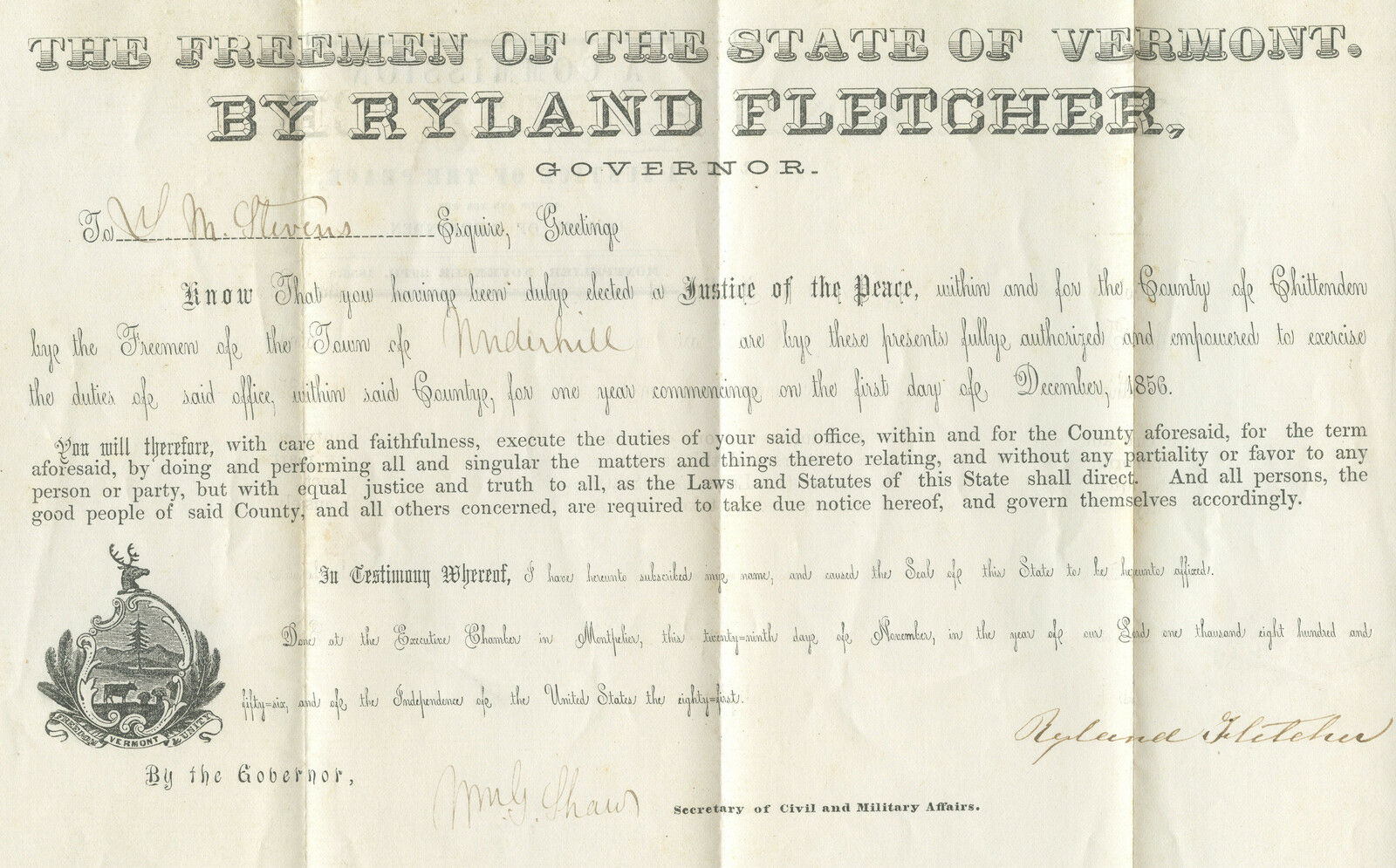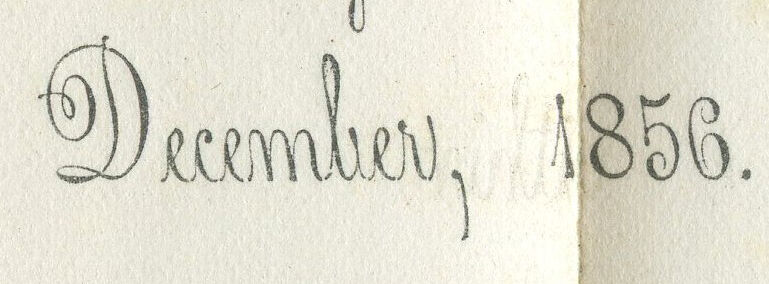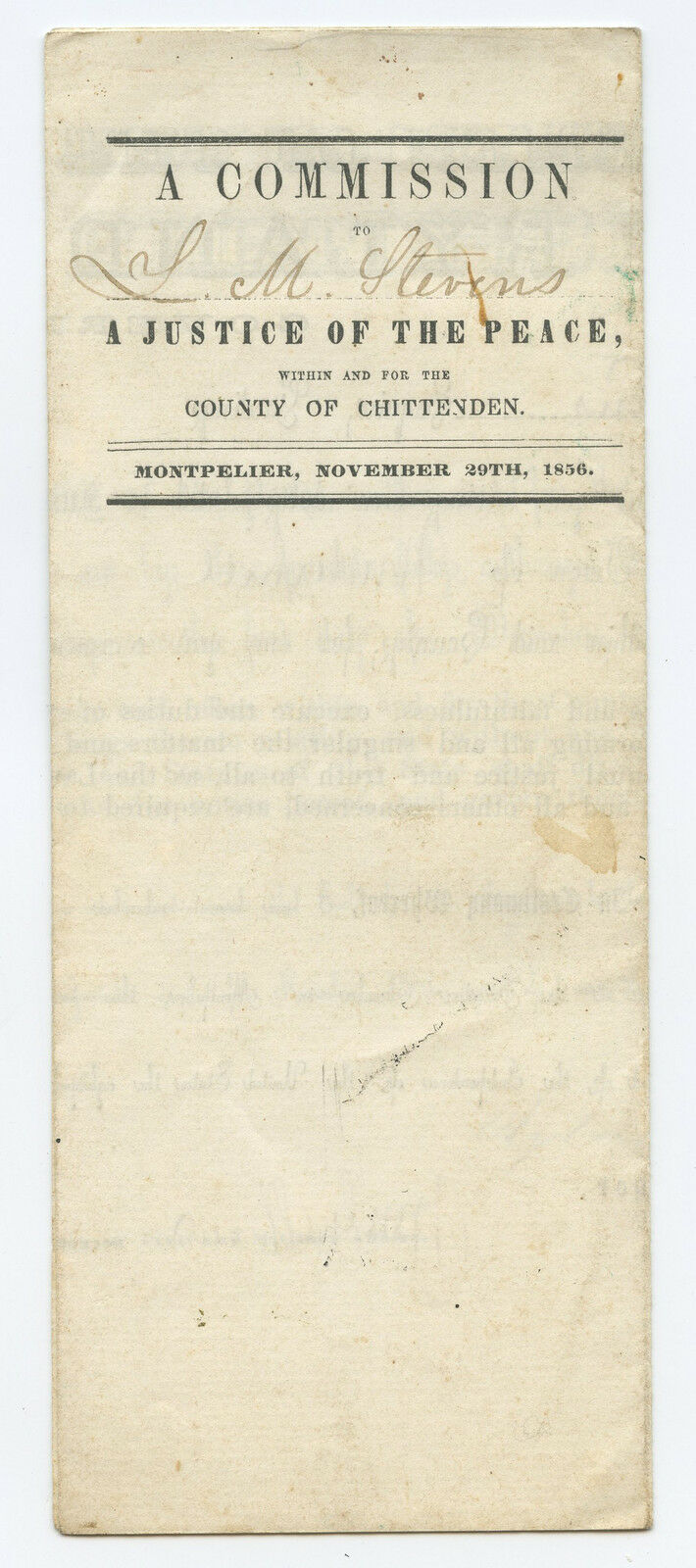-40%
1856 VT GOVERNOR KNOW NOTHING BRIGADIER GENERAL RYLAND FLETCHER LAW COMMISSION
$ 158.39
- Description
- Size Guide
Description
A historical document measuring approximately 8 x 12 1/2 inches in condition picture with no major tears and some edge foldovers.Ryland Fletcher was the 18th Lieutenant Governor of Vermont from 1854 to 1856, and then was the 24th Governor of Vermont from 1856 to 1858. After leaving office, he served in the Vermont legislature and was a member of the State Constitutional Convention in 1870. In his early years he worked on his father's farm and taught in a local school. He was a member of the Vermont state militia, where he attained the rank of Brigadier General. He was the brother of United States Representative Richard Fletcher.
Fletcher was a member of the anti-immigrant Know-Nothings in 1856. Fletcher had said that "immigrants brought with them the 'mortal disease (of) monarchy and despotism, of Romanism and heathenism... which left unchecked would sweep away our most cherished liberties and dearist institutions.'"
The Know Nothing was a movement by the nativist American political faction of the 1850s, characterized by political xenophobia, anti-Catholic sentiment, and occasional bouts of violence against the groups the nativists targeted. It was empowered by popular fears that the country was being overwhelmed by German and Irish Catholic immigrants, who were often regarded as hostile to republican values and controlled by the Pope in Rome. Mainly active from 1854 to 1856, it strove to curb immigration and naturalization, though its efforts met with little success. Membership was limited to Protestant males of British American lineage. There were few prominent leaders, and the largely middle-class and entirely Protestant membership fragmented over the issue of slavery.
Nativists had become active in politics in New York in 1843 as the American Republican Party. It spread to nearby states as the Native American Party (which appealed to native-born white citizens) and won a few thousand votes in 1844. Historian Tyler Anbinder warns, however, that the "Native American" party should not be confused with the Know-Nothings because the two different groups ran separate tickets in the same elections in the 1850s.
In the early 1850s numerous anti-Catholic secret orders grew up, of which the "Order of United Americans" and the Order of the Star Spangled Banner came to be the most important. They merged in New York in the early 1850s as a secret order that quickly spread across the North, reaching Protestants, especially those who were lower middle class or skilled workmen. Outsiders called them "Know-Nothings" and the name stuck. In 1855 the Know-Nothings first entered politics under the American Party label.
The origin of the "Know Nothing" term was in the semi-secret organization of the party. When a member was asked about its activities, he was supposed to reply, "I know nothing".
On Oct-01-12 at 11:31:24 PDT, seller added the following information:
FREE! Sellers: Add a FREE map to your listings. FREE!




















